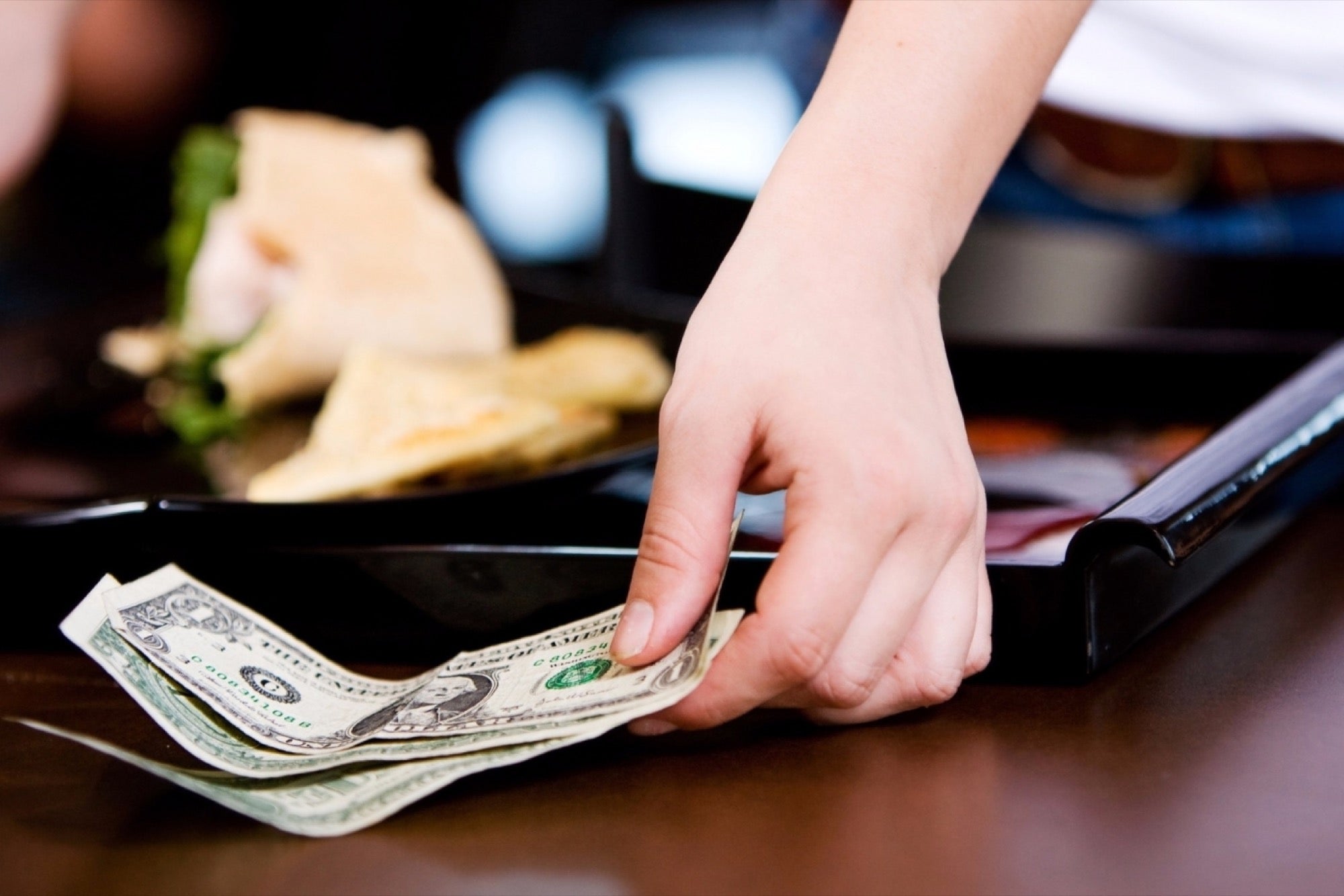Small Businesses That Encourage Tipping Are Killing Their Brand The tip cup by the register tells customers you would rather your team panhandle than pay them decently.
By Carol Roth
Opinions expressed by Entrepreneur contributors are their own.

Tipping is a polarizing subject. Some people love to tip and others don't love to tip. However, there has been a trend in putting tipping front and center in a number of environments, from retail to online delivery.
I contend that as a small business, you shouldn't actively encourage tipping. Here's why…
It screams "I don't pay my employees enough."
A tip used to be something that a customer gave to the person providing a service for going above and beyond the expected level of service. Somehow, that has morphed into a supplement for employees that don't make a lot of money.
As a business, it behooves you to pay your employees well -- at least well enough to keep them happy and doing a good job for your customers. It shouldn't be your customers' burden to ensure that your employees are making enough money and your customers shouldn't feel like you are being cheap either. Neither scenario is good for your brand or business.
Related: Contrary to Perception, Small Businesses Do Back a Minimum-Wage Increase
It looks low-end.
Speaking of branding, having a tip box at the register just looks cheap. Regardless of what vibe you are setting out to create, "cheap" should never be a part of it.
Related: How a no-tipping policy helped this restaurant triple profits in 2 months
It's misplaced.
From car service apps to coffee counters, tips are often asked for up front. If the tip serves its purpose -- that is, to reward an employee for outstanding service -- that tip should be given at the end of a transaction or interaction, not before any services have been provided.
Do you really want to drop a dollar into the barista's tip jar only to get the wrong order served to you ten minutes later? Your customers don't want to have that happen either.
Also, for many customers, they want recognition for their generosity, especially if they deal with your business and employees on an ongoing basis. It's one thing for them to hand a tip directly to someone who has provided great service. It doesn't confer a benefit to your customer to give a tip that's not recognized by the receiver.
Related: Does Tipping Your Uber Driver Make Sense?
It confuses global customers.
Tipping is a very American custom. In many other cultures, it is not an accepted practice, and in some places it is considered an insult. Asking for tips can confuse or turn off your customers who reside in other countries.
It can cause riffs.
In most businesses, the customer experience is dependent upon a number of individuals and factors, not just one. A customer in a hotel is influenced by the property, the bellman, the concierge, housekeeping, etc. A coffeehouse customer is influenced by the cashier and the barista, as well as possibly some other prep staff. Deciding who gets communal tips or just allowing certain employees to receive tips can cause strife amongst employees that impact the culture of the business and ultimately, the customer experience.
If you still think that tipping is something that your customers want to do, allow them to do it on their own terms, instead of soliciting them with misplaced boxes and envelopes. If it's part of an app, make sure that you have flexibility so that they can choose to put the tip in after the service is completed and also choose if they want to reward just the specific service provider or pool the money for a broader team.
Also, be clear about the policy so that you don't confuse your customers, especially those who may not be familiar with tipping due to their cultures.










